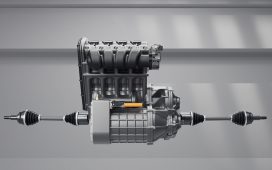Remember the poster that wanted more enlistments in the army, stating, “Uncle Sam wants you?” Well, it seems Uncle Sam wants you, again, only this time, it wants you to buy an electric vehicle. Okay, you might say. You were going to get a new ride anyway, and the $7,500 electric vehicle tax credit certainly makes an EV sound like a dream car, right? Only, knowing Uncle Sam and the IRS, you must know this, getting that $7,500 EV tax credit is not going to be easy, at all.
You can thank President Joe Biden and the toilet-paper-roll climate bill signed last year for the same, as tax credits for purchasing EVs underwent a massive overhaul beginning January 1, 2023. To make things even more complicated, the rules might change in March again, which means a car that will have Uncle Sam throw in $7,500 for free, might get zilch in the next few months.
One major reason for all this change has to be Asia, which is fast emerging as a hotbed of and for EVs. America wants you to buy EVs, but it’s not looking for you to go to China or even Korea for them. Of course, state and local governments may offer more incentives, but that’s for you to find out!
Which Electric Vehicles Are Eligible For The $7,500 Federal Tax Credit?
If you thought that buying just any EV will get you the much-vaunted $7,500 federal tax credit, think again. A Tesla can get you the EV tax credit, but a Lucid Air will certainly not.
According to the rules mentioned on the official website of the IRS, qualifying vehicles need to have a battery capacity of at least 7 kilowatt-hours, and the gross weight rating has to be less than 14,000 pounds.
A caveat on the website reads that any EV tax credit is eligible only on a car made by a “qualified manufacturer”, and it displays the list as well. And yet, just because the manufacturer is on the list, doesn’t mean the car will qualify for the electric vehicle tax credit.
There’s a price restriction rule as well so in case you want to buy a sedan or a city-car EV, the price cannot exceed $55,000. This effectively takes out just about all luxury EVs out of the purview of the $7,500 electric vehicle tax credit. In case you want to buy an EV van, SUV, or pickup truck, the ceiling is $80,000. Read on below for more loopholes as well.
How Income Affects The $7,500 Electric Vehicle Tax Credit
First up, the answer is yes, absolutely because there is only so much tax credit you can get with overflowing pockets. To qualify, your modified adjusted gross income cannot exceed $300,000 if you file jointly as a married couple, $225,000 for heads of households, and $150,000 for other filers.
The good thing is that you can use your modified AGI of the year you bought the vehicle in, or the year before, whichever is lower to better get you that $7,500 EV tax credit.
Remember that the electric vehicle has to be for your own use primarily in the U.S. and not for resale. This $7,500 electric vehicle tax credit is nonrefundable, so you cannot get more out of it as well.
What Other Hidden Rules Do I Need To Get The EV Tax Credit?
Not everything is as cut and dry as the price of the EV and the manufacturer’s qualifications. There are plenty of other rules and loopholes as well.
Fuel cell vehicles, for instance, do not need the stamp of a qualified manufacturer. But even an EV that comes from a qualified manufacturer will be eligible for the $7,500 electric vehicle tax credit only if bought new. Plus, the seller needs to report the same to the IRS, along with your taxpayer identifications for you to get that federal benefit.
Another major hurdle in getting the federal tax credit on your EV is its place of assembly. Only cars that have their final assembly in the U.S. are eligible to get the $7,500 electric vehicle tax credit, so count the Kia and the Hyundai EVs out. And let’s not even talk about the Chinese EVs, period! Remember to check the VIN of your car to make sure it came assembled in the U.S.
The rules divvying up the type of car are pretty insane as well. For instance, the Volkswagen ID.4 is a car but if you get the AWD model, IRS says it’s an SUV. The Tesla Model Y remains a car even with AWD but if you add another row, it’s an SUV again. The rules and list keep changing, so make sure to go through the car you buy with an eagle eye if you want that $7,500 electric vehicle tax credit.
Source: irs.gov














